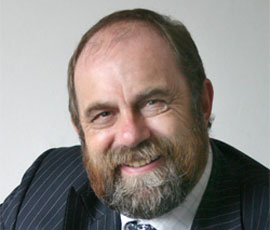New minister committed to CAP ‘greening’

DEFRA remains committed to a policy of “greening” the Common Agricultural Policy, even though this may reduce cereal production in an era when feed costs are already riding high.
Addressing the EPIC conference at the Forest of Arden Hotel near Coventry, agriculture minister David Heath said the UK still supported the concept of greening – which is likely to include taking arable land out of production for wider environmental benefits.
But DEFRA was also seeking an outcome in Brussels that was not overly bureaucratic and tokenistic, but would provide member states with enough flexibility to mould the policy to their own requirements.
According to British Poultry Council chief executive Peter Bradnock, the EU Commission’s own estimates suggested the policy could take 10-25% off poultry producer incomes as a result of higher feed costs.
“That’s quite a big cost for a sector that is not actually benefitting from the CAP itself,” he said. “My plea is that, with the reforms you are going to bring in, that you look at how that might affect those sectors that are not so represented in your group of advisers on CAP reform.”
Mr Heath replied that greening was a very live issue for ministers. His concern was that other member states, with different agendas, could force through an agreement that undermined the good agri-environmental practices the UK were already operating.
The minister had better news with regards to planning permission, expressing a wish to speed up and simplify the process to help rural enterprises expand. “We need things to happen quickly, clearly and without ambiguity,” he said.
Mr Heath also wanted to make it easier for poultry farmers to invest in AD plants and use poultry litter and suggested policies on biofuels may need to be tweaked to offset some of the negative effects on feed availability and price.
Overall, Mr Heath praised the poultry sector for its resilience. “You’ve been able to rise to different challenges, take advantage of opportunities and to maintain a strong presence in the marketplace.
“As consumers tighten their belts, the popularity, versatility and adaptability of chicken have allowed your sector to stay broadly on track. More than half of the UK’s population regard chicken as safer, cheaper and healthier than other meats.
“The 369 million chickens slaughtered in Britain in 1973 needed just over 1.5m tonnes of feed. Today, the same amount of feed will support 527 million birds – a 42% increase.” This was down to improved fertility and disease resistance, developing new skills and applying latest scientific knowledge
